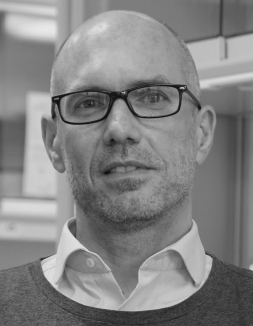Member


Organizing Committee member
Dr. Matthias Drosten obtained a degree in Biology from the University of Bochum, Germany. After that, he joined the laboratory of Prof. Brigitte Pützer at the Institute of Molecular Biology of the University of Essen Medical School where he obtained his PhD degree in 2003 studying the effects of RET inhibition in thyroid cancer. In 2004 he joined the laboratory of Dr. Mariano Barbacid at the CNIO in Madrid as a postdoctoral fellow to work on RAS signal transduction. In 2008 he became a staff scientist in the same laboratory.
During this time, he focused on the development of mouse models to study RAS signaling in lung cancer. In 2021, Dr. Drosten joined the CIC in Salamanca as a principal investigator, where he continues to elucidate the mechanisms of lung cancer formation by RAS oncogenes and develops novel therapeutic strategies.

Leads the RAS signalling & lung cancer group at Centro de Investigación del Cáncer (CIC) in Salamanca.

Organizing Committee member
Dr. Matthias Drosten obtained a degree in Biology from the University of Bochum, Germany. After that, he joined the laboratory of Prof. Brigitte Pützer at the Institute of Molecular Biology of the University of Essen Medical School where he obtained his PhD degree in 2003 studying the effects of RET inhibition in thyroid cancer. In 2004 he joined the laboratory of Dr. Mariano Barbacid at the CNIO in Madrid as a postdoctoral fellow to work on RAS signal transduction. In 2008 he became a staff scientist in the same laboratory.
During this time, he focused on the development of mouse models to study RAS signaling in lung cancer. In 2021, Dr. Drosten joined the CIC in Salamanca as a principal investigator, where he continues to elucidate the mechanisms of lung cancer formation by RAS oncogenes and develops novel therapeutic strategies.

